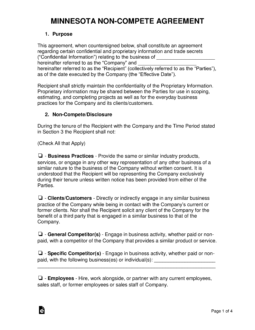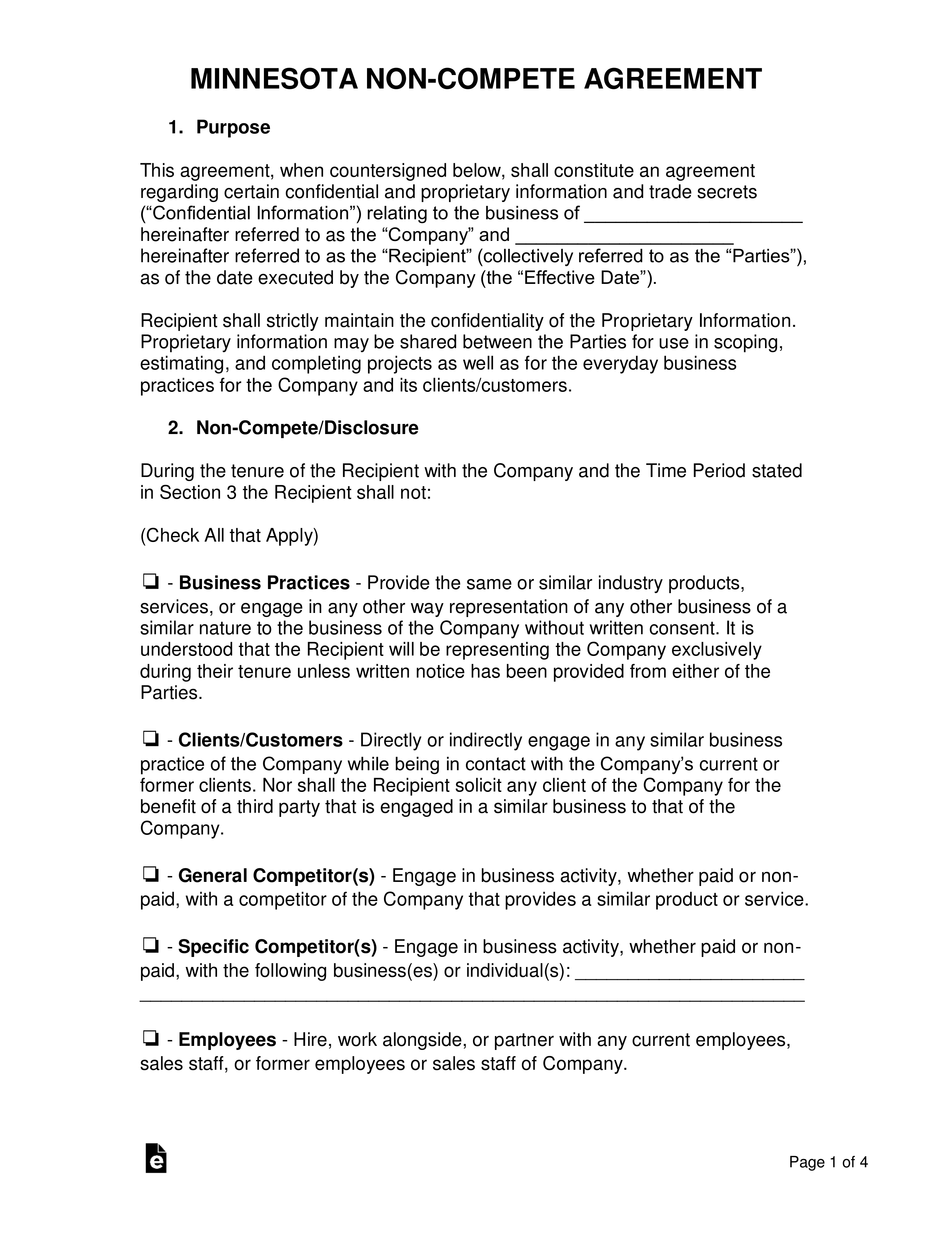Updated March 01, 2024
A Minnesota non-compete agreement prohibits an individual from participating in the same business activities as an employer. There must be a specified duration and geographical area associated with the non-compete restriction. If an employee agrees, it must be presented to them at the time of employment or when an offer letter is accepted.
Laws
Legally Enforceable?
Yes, a non-compete is legally enforceable if it’s reasonable and mentioned “at the inception of the employment relationship.”[1][2][3]
Attorneys (prohibited)
An attorney is prohibited from entering into a non-compete that restricts their ability for them to practice law.[4]
What is Reasonable?
Reasonableness is deemed necessary to protect the employer’s goodwill and whether the restrictions imposed on the employer exemplify more significant limitations than necessary. This must consider the duration and the areas where the employee is restricted.[5]
Consideration
If a non-compete is not made part of an employment contract, separate consideration must be made to enforce the agreement.[6]
Continued Employment
Continued employment alone is not sufficient consideration. It must include “substantial economic and professional benefits” which is described as:[7]
- Increased wages;
- Promotions;
- Guaranteed long-term employment;
- Professional development; or
- Access to information that otherwise would not have been provided.
Maximum Term
The maximum term favors a non-compete for the sale of a business versus employment-related.
Employment
2 years has been honored as reasonable by the Supreme Court.[8]
Sale of a Business
10 years has been deemed appropriate by the Supreme Court.[9]
Blue Penciling
There is a blue-pencil doctrine in Minnesota allowing a court “that finds a noncompetition provision unreasonable as written may modify the provision “to render it reasonable and enforceable.”[10]
Sources
- Safety Center Inc. v. Stier (2017)
- AutoUpLink Technologies, Inc., Appellant, vs. Lynn Clark Janson (2016)
- Sanborn Mfg. Co. v. Currie (1993)
- Professional Rules 5.6
- Bennett v. Storz Broadcasting Co. (1965)
- Modern Controls, Inc. v. Andreadakis (1978)
- Satellite Industries, Inc. v. David C. Keeling (1987)
- Alside, Inc. v. Larson (1974)
- Faust v. Parrott (1978)
- Yonak v. Hawker Well Works, Inc. (2015)


